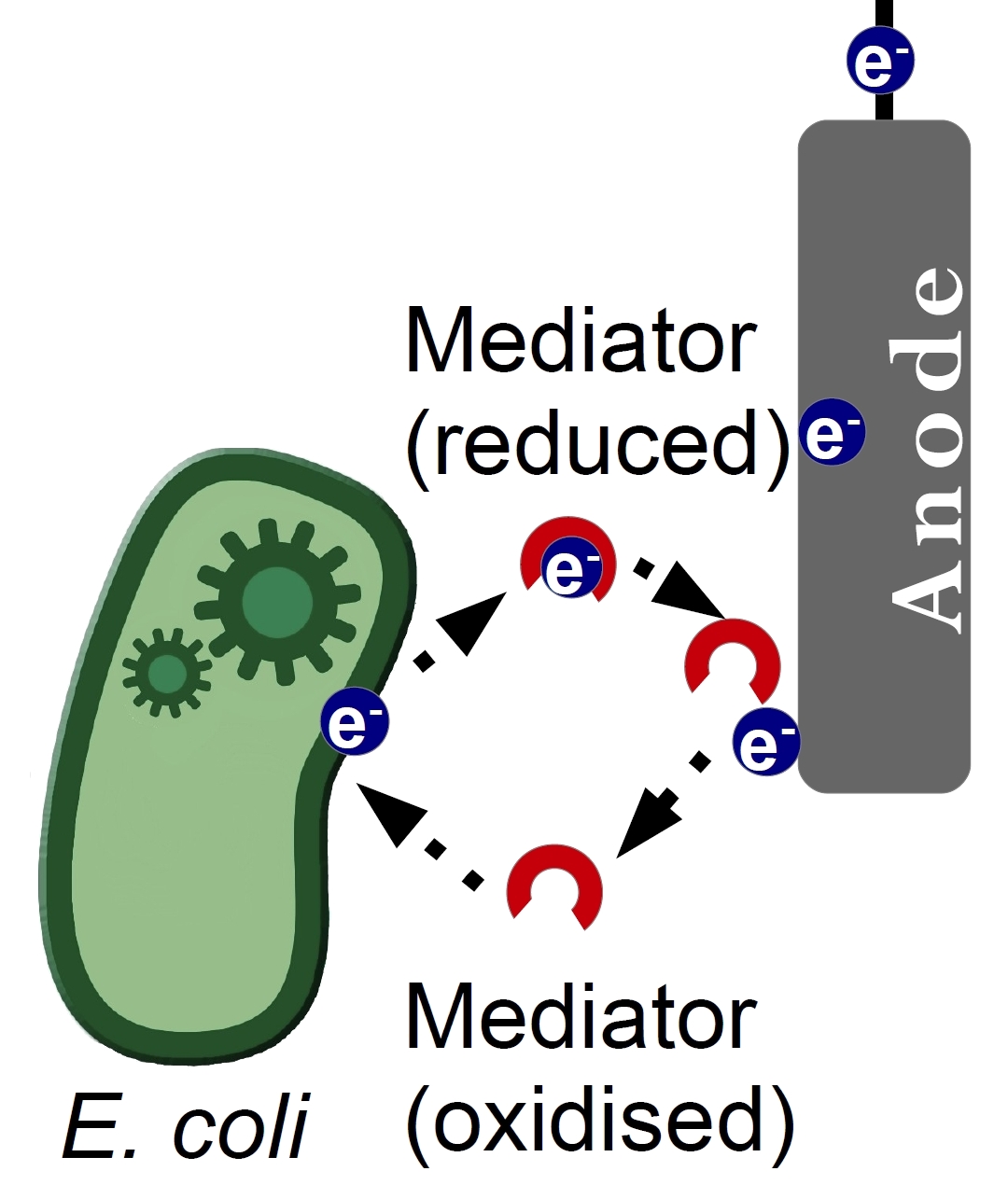Team:Bielefeld-Germany/Project/Mediators
From 2013.igem.org
(Difference between revisions)
| Line 8: | Line 8: | ||
<style> | <style> | ||
.text {width:650px; float:left; padding-right:20px} | .text {width:650px; float:left; padding-right:20px} | ||
| - | .pic {float:left | + | .pic {float:left;} |
</style> | </style> | ||
</html> | </html> | ||
| Line 19: | Line 19: | ||
==Mediators== | ==Mediators== | ||
| - | <div class=" | + | <div class="mytext"> |
<p align="justify">Of great interest is the production of endogenous mediators. The overexpression of glyceroldehydrogenase in ''E. coli'' is a promising approach. Because many derivates of glyceroldehydrogenase are small, water-soluble redoxmolecules, they have the properties of a mediator. Futhermore, it will be tested, if there is a possibility of expressing the mediator phenazin. Phenazin is an endogenous | <p align="justify">Of great interest is the production of endogenous mediators. The overexpression of glyceroldehydrogenase in ''E. coli'' is a promising approach. Because many derivates of glyceroldehydrogenase are small, water-soluble redoxmolecules, they have the properties of a mediator. Futhermore, it will be tested, if there is a possibility of expressing the mediator phenazin. Phenazin is an endogenous | ||
mediator of ''Pseudomonas'' species. | mediator of ''Pseudomonas'' species. | ||
Revision as of 22:34, 26 September 2013
Mediators
Of great interest is the production of endogenous mediators. The overexpression of glyceroldehydrogenase in E. coli is a promising approach. Because many derivates of glyceroldehydrogenase are small, water-soluble redoxmolecules, they have the properties of a mediator. Futhermore, it will be tested, if there is a possibility of expressing the mediator phenazin. Phenazin is an endogenous mediator of Pseudomonas species.
 "
"

